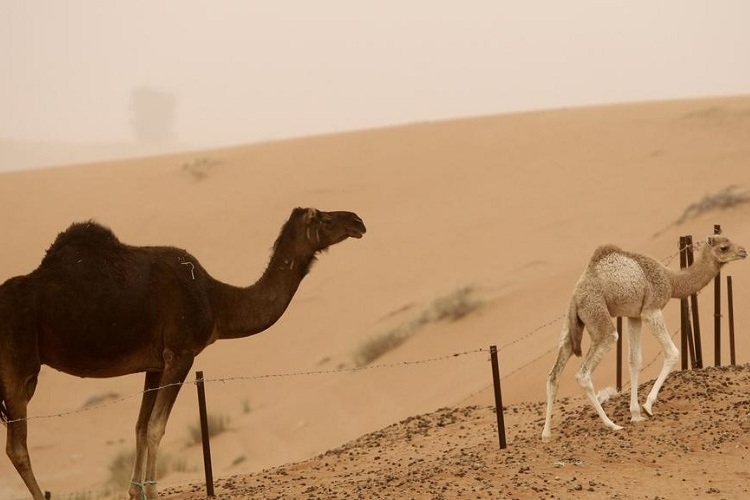First Mers virus case of 2018 detected in UAE
By Aliheydar_Rzayev Wednesday, 06 June 2018 1:23 PM

A new Middle East Respiratory Syndrome (Mers-CoV) virus patient has been confirmed in the UAE, according to World Health Organization.
The patient - a 78-year-old man - was suffering from fever, cough and shortness of breath since May 4 and was brought to hospital on May 13. He had recently travelled to Saudi Arabia and also owned a camel farm in Gayathi, UAE, which he visited on daily basis, WHO said.
Also suffering from hypertension and interstitial lung disease as underlying conditions, the patient was tested positive for Mers-CoV at the Sheikh Khalifa Medical Centre laboratory and is currently in stable condition at the hospital.
This is the first Mers case in the UAE reported in 2018.
Globally, 2,207 laboratory-confirmed cases of Mers-CoV, including 787 MERS associated deaths have occurred since September 2012. So far, 16 cases of Mers have been reported to WHO in 2018 with one each in the UAE, Oman, Malaysia and the remaining in the Saudi Arabia.
Infection with Mers-CoV can cause severe disease resulting in high mortality. Humans are infected with Mers-CoV from direct or indirect contact with dromedary camels. The virus has also demonstrated the ability to transmit between humans.
WHO "expects that additional cases of Mers-CoV infection will be reported from the Middle East, and that cases will continue to be exported to other countries by individuals who might acquire the infection after exposure to animals or animal products," it said in a statement on Tuesday.
According to the WHO, the Communicable Disease Department in UAE is in coordination with the animal authorities to initiate camel testing at the patient's farm in UAE.
However, it said that it is not always possible to identify patients with Mers-CoV infection early because, like other respiratory infections, the early symptoms of Mers are non-specific. Therefore, healthcare workers should always apply standard precautions consistently with all patients, regardless of their diagnosis.
It advised that until more is understood about Mers-CoV, people with diabetes, renal failure, chronic lung disease, and immunocompromised persons are considered to be at high risk of severe disease from Mers-CoV infection. Therefore, in addition to avoiding close contact with suspected or confirmed human cases of the disease, people with these conditions should avoid close contact with animals, particularly camels, when visiting farms, markets, or barn areas where the virus is known to be potentially circulating. General hygiene measures, such as regular hand washing before and after touching animals and avoiding contact with sick animals, should be adhered to.
It further added that food hygiene practices should be observed. People should avoid drinking raw camel milk or camel urine, or eating meat that has not been properly cooked.
Khaleej Times




























Add new comment